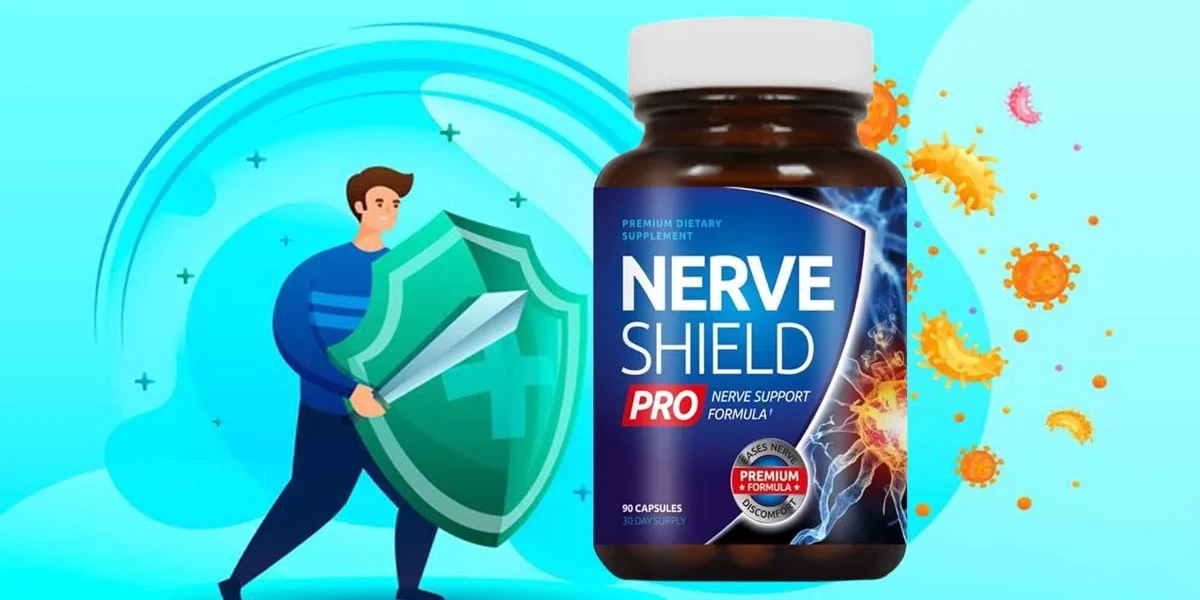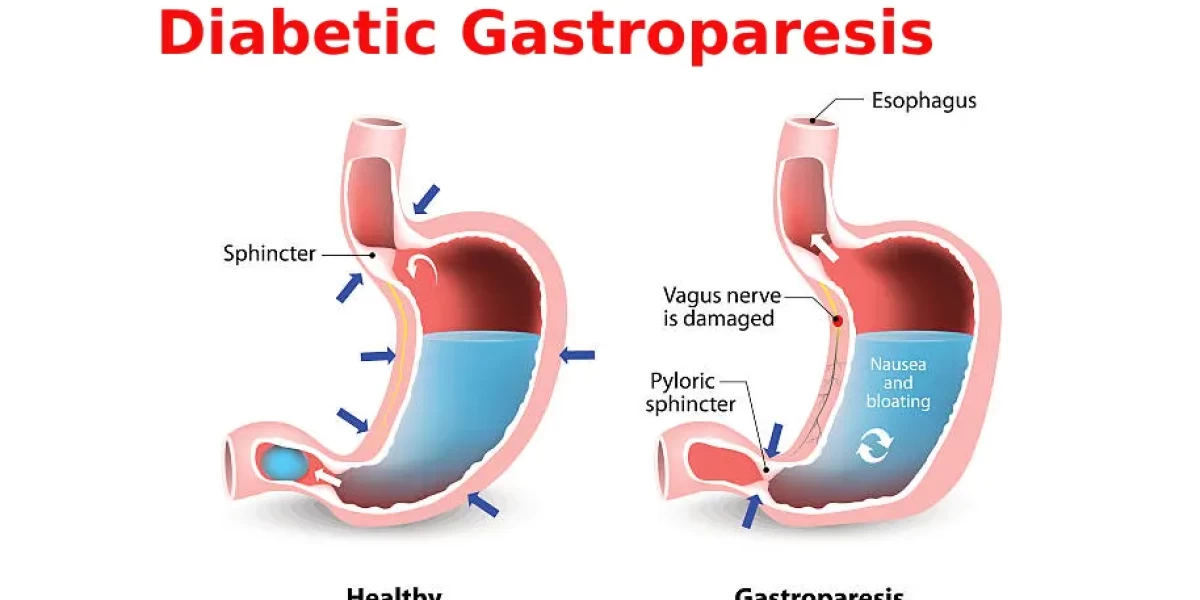Introduction
Sciatic nerve pain, commonly known as sciatica, affects millions of people worldwide and can have a significant impact on daily life. Characterized by pain that radiates along the sciatic nerve pathway—typically from the lower back down through the hips, buttocks, and legs—sciatica can range from mild discomfort to debilitating pain that hinders movement. This condition often arises from issues like herniated discs, spinal stenosis, or even prolonged poor posture, and it can cause symptoms beyond pain, including tingling, numbness, and muscle weakness. Living with sciatic pain can make routine activities challenging, affecting work productivity, sleep quality, and overall well-being.
Due to the limitations and potential side effects of conventional treatments, many individuals are seeking natural approaches to manage sciatic nerve pain effectively. Vitamins have emerged as a promising option in this regard, as they can help support nerve health, reduce inflammation, and potentially alleviate some symptoms associated with sciatica. While vitamins are not a cure, they play a valuable role in supporting the body’s healing processes and optimizing nerve function. By understanding the impact of certain vitamins on nerve health and inflammation, individuals can complement their treatment plans and work toward better overall health, providing a holistic approach to managing sciatica. Best Vitamin for Sciatic Nerve Pain
Understanding the Role of Vitamins in Sciatic Nerve Pain

Vitamins are essential for nerve health, as they play a crucial role in reducing inflammation and supporting overall nerve function. Sciatic nerve pain often stems from inflammation, tissue damage, or oxidative stress, which can be alleviated through specific nutrients. For example, vitamins like B-complex (including B1, B6, and B12), vitamin D, and antioxidants such as vitamin E have shown promise in reducing nerve pain by supporting nerve repair, managing inflammation, and preventing nerve damage.
A balanced diet rich in these vitamins can play a vital role in managing sciatic nerve pain. Proper nutrient intake supports nerve cell membranes, enhances blood flow to affected areas, and promotes healthy neurotransmitter function, all of which are essential for reducing pain and discomfort associated with sciatica. However, several factors can influence how effectively vitamins relieve sciatic pain, including the severity of the condition, individual absorption rates, and consistency in maintaining a nutrient-rich diet. For people with dietary restrictions, supplements may be recommended to meet daily vitamin requirements and ensure comprehensive nerve support. Best Vitamin for Sciatic Nerve Pain
Essential Vitamins and Nutrients for Sciatic Nerve Pain Relief
Managing sciatic nerve pain involves more than just treatments like physical therapy and medications. Incorporating essential vitamins and nutrients that support nerve health can play a significant role in pain relief and recovery. These nutrients aid nerve repair, reduce inflammation, and improve muscle and bone health—all crucial for alleviating the pain and discomfort associated with sciatica. Here’s a detailed look at how specific vitamins, including B vitamins, vitamin D, C, and E, can help relieve sciatic nerve pain and promote overall nerve health.
Vitamin B Complex: Essential for Nerve Repair and Function
The B vitamin family is known for its powerful benefits for nerve health, making it essential for individuals experiencing sciatic pain. B vitamins, particularly B1, B6, and B12, are crucial for nerve cell repair, protection, and functioning. These vitamins work collectively to support neurotransmitter functions and help alleviate nerve inflammation, which is key in reducing sciatic pain. For anyone dealing with nerve-related pain, ensuring a regular intake of B vitamins can significantly reduce pain episodes by enhancing nerve resilience and repair. This group of vitamins helps maintain the myelin sheath, a protective covering around nerves, which when damaged, can contribute to pain and discomfort in conditions like sciatica. Best Vitamin for Sciatic Nerve Pain
Vitamin B12: The Sciatic Nerve Health Superstar
Vitamin B12 stands out as one of the most important vitamins for nerve health, specifically in the context of sciatic pain relief. B12 is essential for nerve regeneration and the maintenance of the myelin sheath. When this protective sheath around the nerve cells is damaged, it can lead to increased sensitivity and chronic pain in the sciatic nerve. A deficiency in B12 is often linked to heightened nerve pain, tingling, and numbness, which are hallmark symptoms of sciatica. Ensuring adequate intake of B12—around 2.4 micrograms daily for most adults—is key. Natural sources include meat, fish, dairy, and fortified cereals, but for those who are deficient, supplements may be necessary.
Vitamin B6: Supporting Nerve Function and Pain Relief
Vitamin B6 is another essential nutrient for nerve health, contributing to the production of neurotransmitters that regulate nerve signals and mood. B6 helps alleviate sciatic pain by supporting nerve repair and function. However, it’s important to stick to the recommended dosage since excessive intake can cause nerve toxicity and exacerbate symptoms. The recommended daily intake for adults is around 1.3 to 2 mg, which can be obtained from foods like chickpeas, tuna, salmon, and fortified cereals. For those needing additional support, B6 supplements are available but should be taken under medical guidance.
Vitamin D: Promoting Bone and Muscle Health to Ease Sciatic Pain
Vitamin D plays a critical role in musculoskeletal health, which directly impacts sciatic pain. Adequate vitamin D levels support bone density, muscle strength, and overall nerve health, reducing pressure and irritation on the sciatic nerve. A deficiency in vitamin D has been associated with increased pain sensitivity and a higher risk of chronic pain. The daily recommended intake of vitamin D is 600 to 800 IU, achievable through sunlight exposure, dietary sources like fatty fish and fortified milk, and supplements if necessary.
Vitamin C: Reducing Sciatic Inflammation and Boosting Collagen Production

Vitamin C is well-known for its anti-inflammatory properties, which can help reduce sciatic nerve inflammation. This vitamin also supports collagen production, an essential protein for maintaining the structural integrity of tissues surrounding the sciatic nerve. By boosting collagen production, vitamin C aids in protecting and cushioning the nerve, thereby reducing pain levels. Citrus fruits, strawberries, and bell peppers are rich in vitamin C. Supplementing with 75-90 mg per day can provide added support, especially for those with low dietary intake. Best Vitamin for Sciatic Nerve Pain
Vitamin E: Antioxidant Protection for Nerve Cells
Vitamin E is a powerful antioxidant that protects nerve cells from oxidative damage, which is particularly beneficial for people experiencing sciatic pain. By reducing oxidative stress, vitamin E can help mitigate nerve cell deterioration and contribute to pain relief. This vitamin is found in nuts, seeds, and leafy greens, with a recommended daily intake of 15 mg for adults. Taking vitamin E supplements may be beneficial for those with low levels, but it's essential to adhere to the recommended dosage to avoid potential side effects.
Omega-3 Fatty Acids: Anti-Inflammatory Benefits for Sciatica Sufferers
Omega-3 fatty acids are known for their powerful anti-inflammatory effects, which can be particularly beneficial for people suffering from sciatica. Sciatica often results from inflammation and compression of the sciatic nerve, causing pain and discomfort in the lower back and legs. Omega-3s, especially EPA and DHA, help reduce inflammation by decreasing the production of inflammatory cytokines and prostaglandins. These fatty acids support nerve health by promoting cell membrane flexibility and helping repair damaged nerve tissue, which can alleviate the severity of nerve pain and improve mobility. For individuals experiencing sciatic pain, omega-3 fatty acids could offer a natural, therapeutic approach to pain relief and healing.
Some of the best sources of omega-3 fatty acids include fatty fish like salmon, sardines, and mackerel, which are rich in EPA and DHA. Plant-based sources, such as flaxseeds, chia seeds, and walnuts, provide ALA, another type of omega-3 that the body can convert to EPA and DHA, though not as efficiently. For those who may not consume enough omega-3s through food, fish oil or algae-based supplements can be valuable alternatives. Including these sources in one’s diet can make a significant difference in reducing inflammation and supporting overall nerve health. For optimal results, experts suggest a daily intake of around 1,000-2,000 mg of combined EPA and DHA, though it’s important to consult with a healthcare provider for personalized dosage recommendations. Regularly consuming omega-3s could help mitigate nerve pain and offer long-term benefits for sciatic nerve health.
Magnesium: Relaxing Muscles and Soothing Irritated Nerves in Sciatica Cases
Magnesium is a vital mineral that plays a crucial role in muscle relaxation and nerve function, both of which are essential for managing sciatica symptoms. Sciatica pain can be exacerbated by muscle tension in the lower back, hips, and legs, which places additional pressure on the sciatic nerve. Magnesium helps prevent muscle spasms and cramps by regulating calcium and potassium levels, which are essential for smooth muscle contraction and relaxation. Additionally, magnesium has calming effects on the nervous system, which can ease nerve irritation and promote a sense of relief from the pain associated with sciatica. Best Vitamin for Sciatic Nerve Pain
Magnesium deficiency is quite common and can lead to increased muscle tension, making sciatic pain worse. Inadequate magnesium intake can result from dietary factors, high-stress levels, or certain medications that deplete magnesium levels. Foods rich in magnesium, such as leafy green vegetables, almonds, pumpkin seeds, and whole grains, can help ensure adequate intake. Supplements can also be a valuable option, especially for those with absorption issues or who need higher doses. When choosing a supplement, forms like magnesium citrate and magnesium glycinate are often recommended for better absorption and fewer digestive side effects. Many experts suggest a daily intake of 300-400 mg, but it’s essential to consult a healthcare provider to avoid over-supplementation. By maintaining optimal magnesium levels, sciatic patients may experience less muscle tension and a reduction in nerve pain intensity. Best Vitamin for Sciatic Nerve Pain
Turmeric (Curcumin): Harnessing the Power of Natural Anti-Inflammatory Properties
Turmeric, particularly its active component curcumin, has been recognized for centuries as a potent natural anti-inflammatory agent, making it an excellent option for individuals suffering from sciatica. Curcumin works by inhibiting inflammatory enzymes and pathways, effectively reducing pain and inflammation throughout the body, including the sciatic nerve. For sciatica sufferers, curcumin’s ability to reduce inflammation can alleviate pressure on the sciatic nerve, which is often caused by swelling or muscle inflammation in the lower back and hips. Additionally, curcumin possesses antioxidant properties that protect nerve cells from oxidative stress, potentially aiding in faster recovery and lessening the intensity of sciatic pain over time.
Studies have shown that curcumin can provide significant pain relief for conditions involving chronic inflammation, including sciatic nerve pain. Incorporating turmeric into your diet can be as simple as adding the spice to meals or making golden milk, a warm, turmeric-based beverage that’s popular for its soothing qualities. However, because curcumin is not highly bioavailable on its own, pairing it with black pepper or a fat source can enhance absorption. For those seeking higher doses, curcumin supplements are widely available, with most experts recommending around 500-1,000 mg of curcumin per day for therapeutic effects. Always consult a healthcare professional before starting a new supplement regimen, especially if you are taking other medications. By incorporating turmeric into one’s diet, sciatic patients may find a natural, effective way to reduce inflammation and experience relief from nerve pain.
Integrating Vitamins and Nutrients into a Sciatic Pain Management Plan
1. Building a Balanced Diet for Sciatic Nerve Health
A balanced diet is fundamental for supporting sciatic nerve health, as the right nutrients can help reduce inflammation, repair nerve damage, and alleviate pain. Essential nutrients for nerve health include B vitamins, which support nerve function and repair, and antioxidants like vitamin C and E that combat inflammation and oxidative stress. Omega-3 fatty acids, found in fatty fish, walnuts, and flaxseeds, have strong anti-inflammatory properties that can help relieve sciatic pain. Magnesium, a mineral abundant in dark leafy greens, nuts, and seeds, plays a crucial role in nerve function and muscle relaxation, both of which can be beneficial for sciatic pain. By focusing on nutrient-dense foods and a variety of fruits, vegetables, lean proteins, and healthy fats, individuals can effectively support their sciatic nerve health. Incorporating sciatic-friendly foods daily is easier with meal planning that emphasizes whole grains, colorful produce, and omega-rich foods. For instance, adding a smoothie with berries, spinach, chia seeds, and almond milk provides a nutrient-rich start to the day that supports nerve health.
2. Supplementation vs. Whole Foods: Pros and Cons
While a balanced diet is the foundation of any sciatic pain management plan, there are cases where dietary supplements may be beneficial. Supplements can help fill nutritional gaps, especially if someone has difficulty obtaining enough nerve-supporting nutrients through diet alone. For example, individuals with dietary restrictions or digestive issues may struggle to absorb certain nutrients, making supplements like B12 or omega-3 beneficial. However, nutrient absorption from whole foods is generally more efficient than from supplements, as whole foods contain additional beneficial compounds that work synergistically. Moreover, whole foods reduce the risk of overconsumption, which can occur with supplements if taken in high doses. When considering supplementation for sciatic pain, it’s essential to understand individual needs and preferences, as well as the potential limitations of relying solely on pills rather than dietary sources of nutrients. Best Vitamin for Sciatic Nerve Pain
3. Consultations and Safe Dosing Practices
Consulting a healthcare provider before beginning any supplement regimen is critical for individuals managing sciatic pain. Supplements, while beneficial, can interact with medications and lead to side effects or complications if not dosed properly. A healthcare provider can guide safe dosages based on age, weight, medical conditions, and specific nutrient needs. Additionally, some nutrients, such as fat-soluble vitamins (A, D, E, K), can accumulate in the body, increasing the risk of toxicity. For sciatic nerve health, common supplements include B vitamins, magnesium, and omega-3 fatty acids, but they must be dosed correctly to avoid adverse effects. Safe dosing practices, along with understanding signs of possible overdose, can help individuals maximize the benefits of supplements for sciatic pain management without unnecessary risks. Best Vitamin for Sciatic Nerve Pain
Lifestyle Changes to Complement Nutritional Support for Sciatica
While nutrition is a core component of managing sciatica, incorporating lifestyle changes can further support pain relief and overall well-being. Exercise routines tailored to sciatic pain relief, such as low-impact activities like swimming, walking, and yoga, strengthen the muscles that support the spine and relieve pressure on the sciatic nerve. Specific stretches targeting the hamstrings, lower back, and hip flexors can also reduce tension around the nerve and improve flexibility, further alleviating pain. Additionally, stress management is crucial, as stress can increase muscle tension and worsen sciatic pain. Techniques like mindfulness meditation, deep breathing exercises, and journaling can help reduce stress levels. Prioritizing quality sleep also supports the body's natural healing processes and can help individuals manage sciatic pain more effectively. Together, these lifestyle changes complement nutritional support and contribute to a comprehensive approach to sciatica management.
Summary: Key Takeaways for Managing Sciatic Nerve Pain with Nutrition
Nutrition plays a significant role in managing sciatic nerve pain, primarily through the support of key vitamins and nutrients essential for nerve health. Key nutrients for sciatic nerve health include B vitamins (B1, B6, and B12), vitamin D, magnesium, and omega-3 fatty acids. These help reduce inflammation, support nerve regeneration, and enhance overall nerve function. Vitamin B12, for example, aids in the production of myelin—the protective sheath around nerves—helping reduce pain and discomfort. Omega-3 fatty acids, found in fish and flaxseeds, provide anti-inflammatory benefits that alleviate pressure on the sciatic nerve. Magnesium, meanwhile, aids in muscle relaxation, reducing spasms that often accompany sciatic pain.
Beyond specific vitamins, a balanced and nutrient-dense diet is essential for promoting long-term nerve health and managing sciatica. When combined with other lifestyle interventions, such as exercise and stress management, a holistic approach that emphasizes nutrition may improve the body’s ability to cope with or even prevent flare-ups of sciatic nerve pain. By focusing on a diet rich in nerve-supportive vitamins and minerals, individuals may experience less frequent or severe sciatic pain, allowing for better quality of life and greater overall well-being. Best Vitamin for Sciatic Nerve Pain
Frequently Asked Questions(FAQs)
01. Can vitamin deficiencies cause sciatica?
Yes, deficiencies in certain vitamins, particularly B vitamins and vitamin D, can contribute to sciatic pain or make it worse. Vitamin deficiencies can impair nerve function, increase inflammation, and make it harder for the body to repair nerve damage, potentially worsening sciatic pain.
02. What is the best vitamin for sciatic nerve regeneration?
Vitamin B12 is widely recognized for its role in nerve regeneration and repair. It supports myelin production, which is crucial for protecting nerve cells and enabling them to communicate effectively. Studies suggest that vitamin B12 can reduce nerve pain, making it one of the best vitamins for supporting sciatic nerve health.
03. How quickly do vitamins help with nerve pain relief?
The timeline for seeing benefits from vitamins varies depending on the individual, severity of deficiency, and overall health. Typically, noticeable changes can be seen within a few weeks to a few months. Consistent intake is key for optimal results, as vitamins need time to build up in the body to support nerve repair and pain relief effectively.
04. Is it safe to take multiple vitamins for sciatic pain at once?
In most cases, yes, especially if they are taken at recommended doses. Some combinations, like B vitamins, work synergistically to support nerve health. However, it's essential to consult with a healthcare provider to avoid potential interactions or excessive dosages, as some vitamins can have adverse effects in large amounts.
05. Can diet alone resolve sciatic nerve pain?
While a nutrient-rich diet can be highly beneficial for managing sciatic nerve pain, diet alone may not completely resolve the pain, especially if it is caused by structural issues or severe nerve compression. A comprehensive approach, combining diet, exercise, physical therapy, and potentially medical intervention, may offer the best results.
06. Are there any side effects to taking these vitamins for sciatica?
Most vitamins and nutrients have minimal side effects when taken at recommended doses, but excessive intake can lead to issues. For example, too much vitamin B6 can cause nerve damage, and excessive magnesium can cause digestive issues. Consulting a healthcare provider is important to ensure safe supplementation.
07. Should I stop taking painkillers if I start a vitamin regimen for sciatica?
Vitamins can support nerve health but typically do not act as immediate pain relievers like medications. Many individuals continue using painkillers as needed, gradually reducing use if pain diminishes over time with vitamin support. However, always consult a healthcare provider before making changes to medication routines.
08. What vitamin relieves sciatica pain?
Vitamin B12 is one of the most effective vitamins for relieving sciatic nerve pain, as it plays a critical role in nerve health and repair. B12 helps regenerate the myelin sheath that protects nerves, potentially reducing pain and discomfort associated with sciatica. Additionally, other B vitamins, such as B1 (thiamine) and B6, can aid in nerve function and pain relief. Omega-3 fatty acids, which have anti-inflammatory properties, also support sciatic nerve health by reducing inflammation and pressure on the nerve.
09. What vitamin deficiencies cause sciatic nerve pain?
Deficiencies in vitamins B1, B6, B12, and vitamin D can contribute to or worsen sciatic nerve pain. Vitamin B12 deficiency, in particular, is linked to neuropathy and nerve damage, both of which can exacerbate sciatica. Vitamin D deficiency can lead to weakened bones and muscles, increasing the likelihood of nerve compression, which may result in sciatic pain. Ensuring sufficient levels of these vitamins can help maintain healthy nerve function and potentially reduce sciatic pain.
10. What is the fastest way to stop sciatica pain?
The fastest ways to alleviate sciatic pain usually involve a combination of rest, targeted stretches, anti-inflammatory medication, and, in some cases, hot or cold therapy. Over-the-counter pain relievers, such as ibuprofen or naproxen, can provide quick relief by reducing inflammation around the sciatic nerve. Physical therapy exercises specifically targeting the lower back and hips may relieve pressure on the nerve, offering both immediate and long-term relief. While vitamins support nerve health over time, they are not typically immediate pain relievers.
11. Is Neurobion good for sciatica?
Yes, Neurobion, which contains a combination of B vitamins (B1, B6, and B12), can be beneficial for people with sciatica. These vitamins work together to support nerve health and reduce inflammation, which may help with the repair of damaged nerve tissue and alleviate pain. However, Neurobion is not a standalone treatment for sciatica but can complement other therapies by addressing potential vitamin deficiencies that may worsen nerve pain.
12. What is the best tablet for sciatica?
The best medication for sciatica depends on individual needs and the severity of the pain. Over-the-counter options like ibuprofen and naproxen are popular for immediate pain relief. For more severe cases, a doctor may prescribe stronger pain relievers, anti-inflammatory medications, or even muscle relaxants. Some patients find relief with nerve pain medications such as gabapentin or pregabalin, which target neuropathic pain specifically.
13. Can B12 cure sciatica?
While vitamin B12 cannot directly cure sciatica, it can significantly support nerve health and may help reduce symptoms associated with sciatica over time. B12 aids in nerve regeneration and repair, which can help alleviate some sciatic pain if it’s caused or worsened by nerve damage or deficiency. However, if sciatic pain is due to structural issues, such as a herniated disc, addressing the underlying cause is necessary. Regular B12 intake may complement other treatments and improve overall nerve function, potentially reducing the intensity or frequency of sciatic pain.
*Image credits- freepik*
Important Notice:
The information provided on “health life ai” is intended for informational purposes only. While we have made efforts to ensure the accuracy and authenticity of the information presented, we cannot guarantee its absolute correctness or completeness. Before applying any of the strategies or tips, please consult a professional medical adviser.













